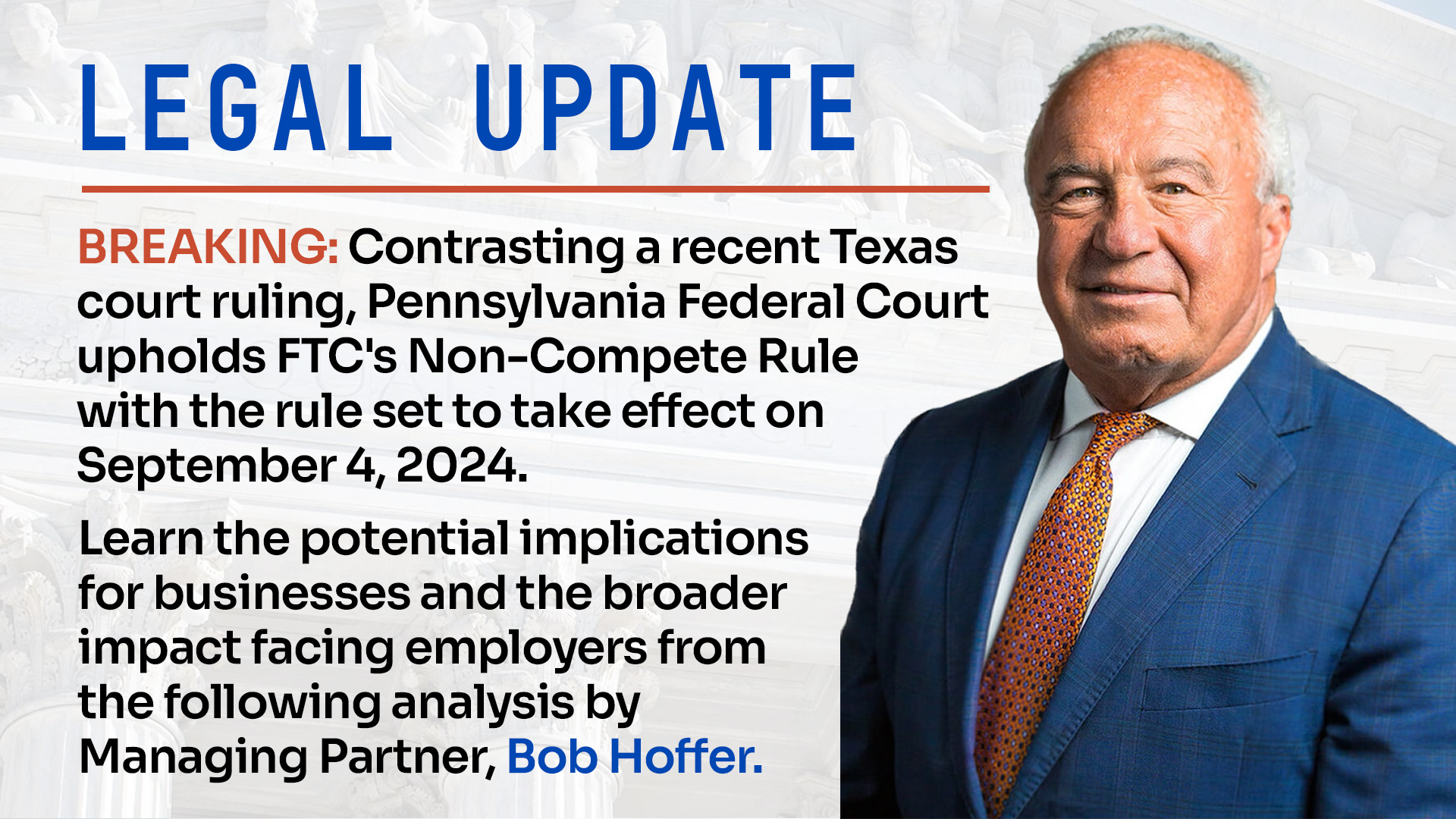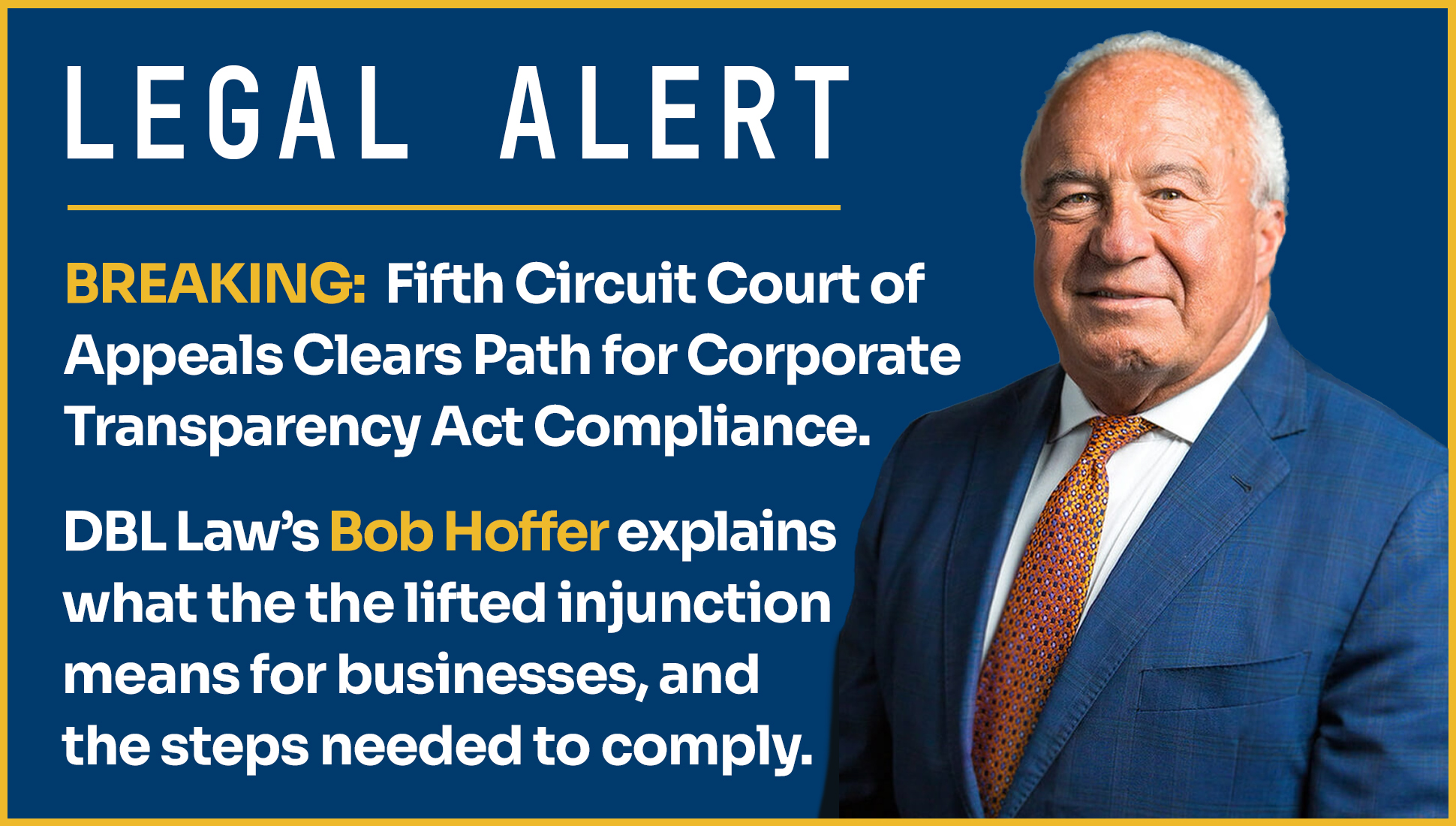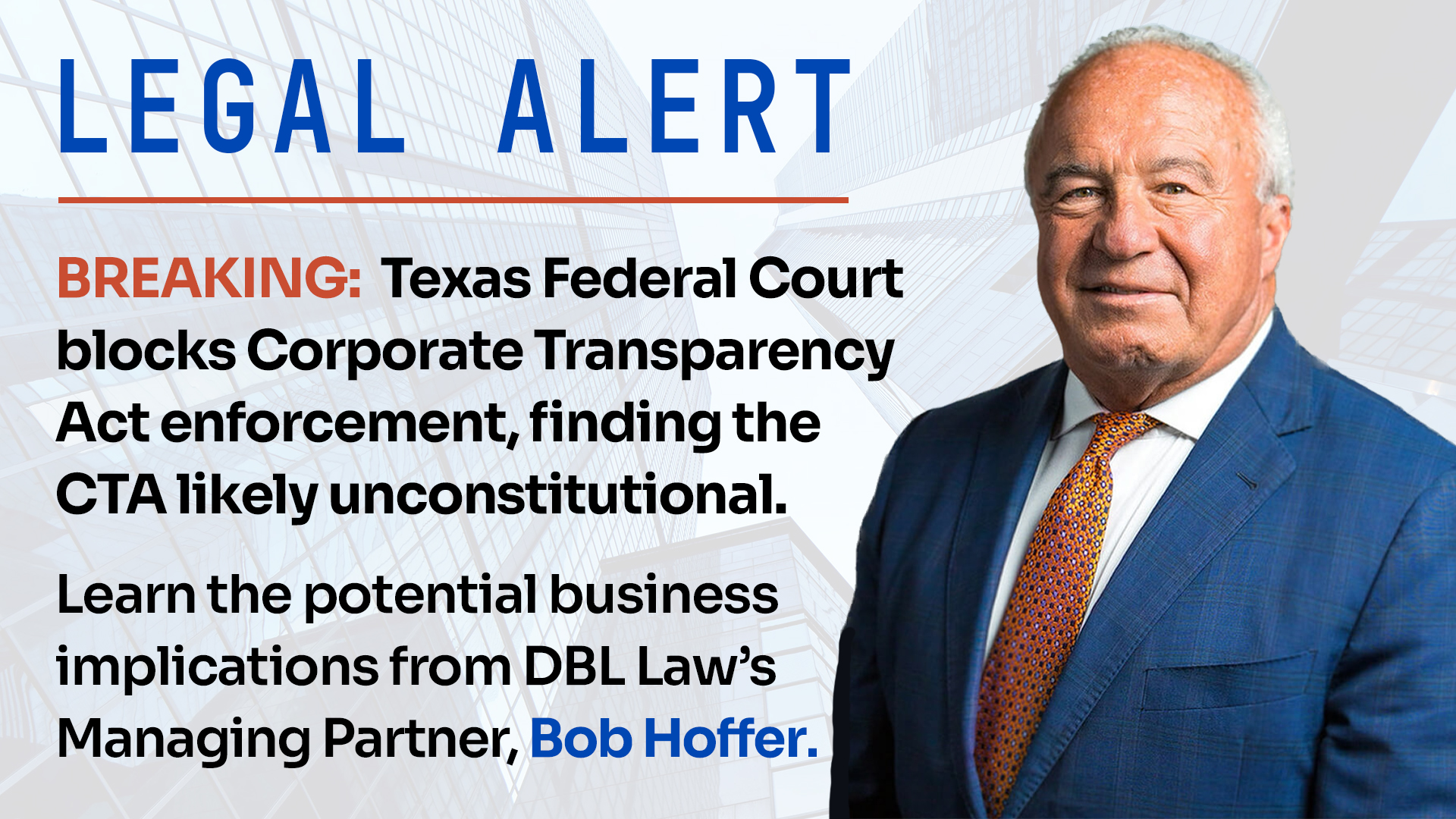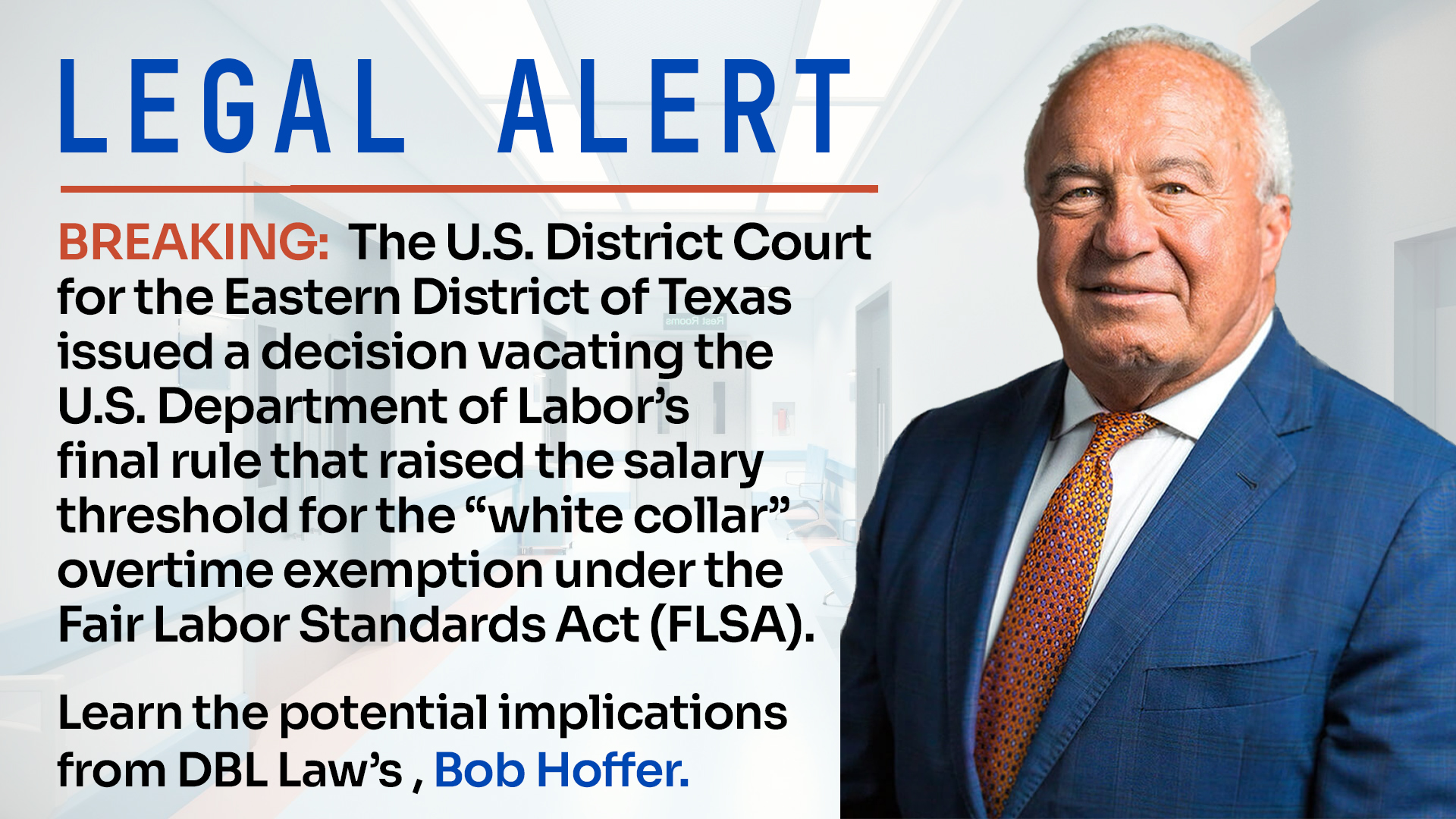By Bob Hoffer, DBL Law
On July 23, 2024, the U.S. District Court for the Eastern District of Pennsylvania, in the case of ATS Tree Services, LLC v. Federal Trade Commission, declined to block the Federal Trade Commission’s (FTC) final rule, commonly referred to as the “Non-Compete Rule.” This rule renders most non-compete agreements unenforceable, with few exceptions. The court denied ATS Tree Services’ motion for a preliminary injunction, determining that the company did not demonstrate that the Non-Compete Rule would cause irreparable harm or that it was likely to succeed on the merits.
Court’s Findings and Legal Reasoning
The court found that ATS Tree Services failed to show that the Non-Compete Rule would cause irreparable harm, stating that nonrecoverable compliance costs and loss of contractual rights were insufficient grounds. Moreover, the court upheld the FTC’s authority to promulgate the Non-Compete Rule, both procedurally and substantively, under the FTC Act. The court noted that the FTC’s authority extended beyond procedural rules to include substantive rules preventing unfair methods of competition, supported by statutory and historical context.
Divergence in Judicial Opinions
This decision contrasts with the recent ruling in Ryan, LLC v. Federal Trade Commission, where the U.S. District Court for the Northern District of Texas enjoined the Non-Compete Rule, arguing that the FTC lacked statutory authority. However, the injunction was limited to the plaintiff and plaintiff-intervenors, without a nationwide scope. The Ryan court is set to adjudicate the rule’s enforceability by August 30, 2024.
Future Developments and Potential Impacts
The Non-Compete Rule is scheduled to take effect on September 4, 2024. However, several pending factors could alter this timeline:
- Final Adjudication in Ryan: The Ryan court’s decision on the merits could potentially expand the scope of relief.
- Appeals: Appeals in either the ATS or Ryan case could seek emergency relief from the circuit courts, though a ruling before September 4 is unlikely.
- Third Challenge: A third legal challenge in Properties of the Villages, Inc. v. Federal Trade Commission in the U.S. District Court for the Middle District of Florida could halt the Non-Compete Rule.
Detailed Analysis of the ATS Ruling
In its ruling, the court focused on two primary issues:
- Irreparable Harm: The court concluded that ATS’s alleged economic compliance costs were mere monetary losses and business expenses, which do not constitute irreparable harm. Additionally, ATS failed to show that the loss of contractual rights would lead to significant employee or proprietary information loss.
- Likelihood of Success on the Merits: The court held that ATS was unlikely to succeed on the merits. It found that the FTC had the necessary authority to promulgate the Non-Compete Rule, and this authority included the ability to enforce substantive rules aimed at preventing unfair competition.
Strategic Considerations for Employers
Employers should remain vigilant as these legal battles unfold. It is crucial to consult with legal counsel to understand the implications of the Non-Compete Rule and develop strategies to comply with its requirements. Specifically, employers should assess the risks associated with the rule’s notice requirement as the September 4, 2024, deadline approaches.
For detailed guidance on how these developments may affect your business, please reach out to our Employment & Labor Practice Group at DBL Law. Our team of experienced attorneys is here to help you navigate these changes and ensure your organization remains compliant with the evolving legal landscape.
About the Author
Bob Hoffer is a seasoned attorney at DBL Law, specializing in employment law. He provides expert legal counsel to businesses navigating complex regulatory landscapes.





